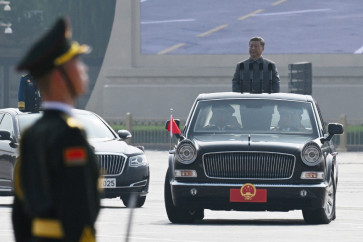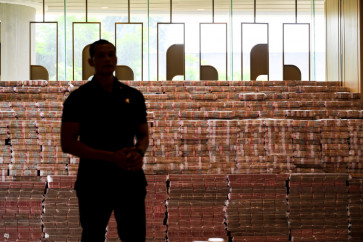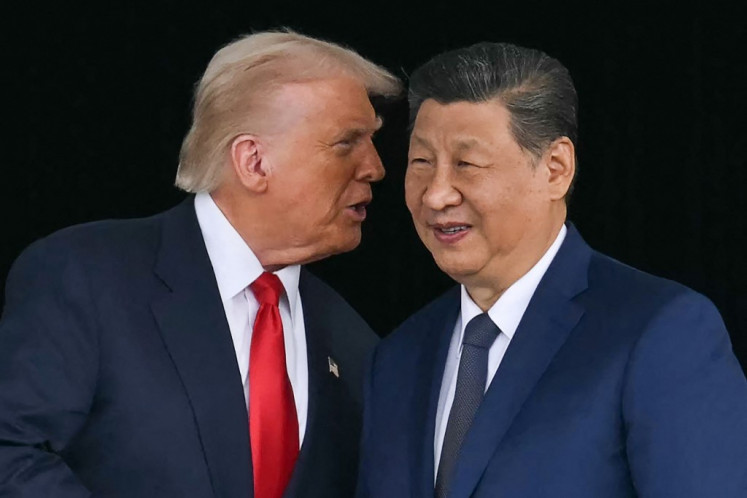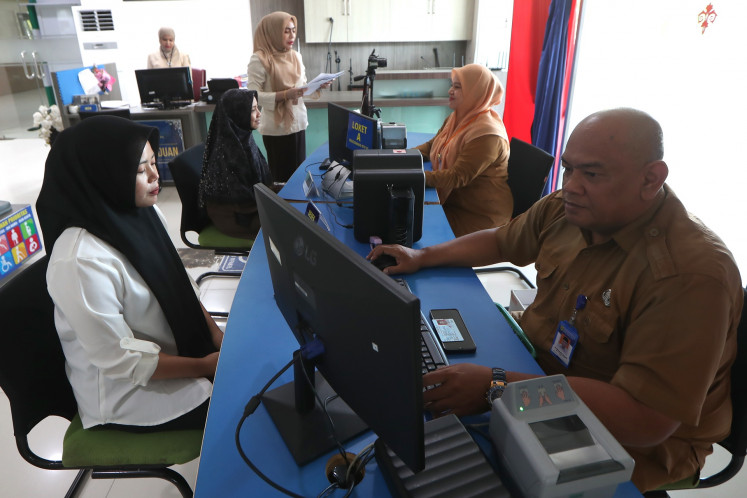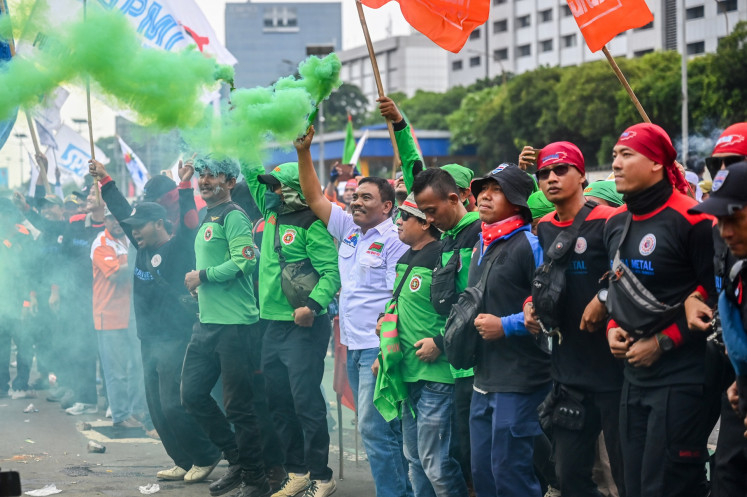Popular Reads
Top Results
Can't find what you're looking for?
View all search resultsPopular Reads
Top Results
Can't find what you're looking for?
View all search resultsSustainable cities: Discussing solutions to urban problems
Government officials, businesspeople and experts from Indonesia, Sweden, Singapore and Thailand gathered in Jakarta on Thursday to discuss the challenges of building sustainable cities
Change text size
Gift Premium Articles
to Anyone
Government officials, businesspeople and experts from Indonesia, Sweden, Singapore and Thailand gathered in Jakarta on Thursday to discuss the challenges of building sustainable cities.
"Sustainable cities are a vision that must be made real. It is essential to the urban future of Southeast Asia," Belinda Yuen, an associate professor at the School of Design and Environment at the University of Singapore, said during the seminar, titled Sustainable Cities: Challenges for Indonesia and Sweden.
Yuen said Asia was experiencing rapid urban growth. By 2030, Asia will have an urban population of 2.6 billion, or 61 percent of the world's total urban population, according to the United Nations.
"It will have serious implications for resources, with many people not having access to basic services," she said.
The seminar was organized by Sweden's Embassy in Jakarta, Indonesia's State Ministry for the Environment and the Swedish International Development Cooperation Agency.
During the event, Hans Lundberg from the Swedish Environmental Institute presented a concept called SymbioCity -- Sustainability by Sweden.
SymbioCity is a concept focusing on energy, waste management, water supply and sanitation, traffic and transportation, landscape planning, sustainable architecture and urban functions like housing and recreation.
"The SymbioCity approach finds links between the sectors and their system investments in order to optimize the results," according to the website Symbiocity.org.
For example, waste destined for landfills or household biowaste can produce energy that fuels public transportation.
A presentation by the ASEAN Secretariat during the seminar explained that countries from the Association of Southeast Asian Nations adopted these types of sustainability concepts in their Working Group on Environmentally Sustainable Cities, formed in 2003.
The chair of the working group, Liana Bratasida, said the group adopted initiatives touching on three areas: water, air and solid waste.
In 2005, the working group created the ASEAN Initiative to expand beyond those three areas, Liana said.
"The initiative will be implemented through the ASEAN Network on Environmentally Sustainable Cities ... the network will be set up as a web portal," she said.
The network currently includes 24 cities from all 10 ASEAN countries. Members from Indonesia are Balikpapan, Medan and Denpasar.
In July 2008, during the sixth annual meeting of the working group in Palembang, South Sumatra, the group will for the first time present ASEAN Environmentally Sustainable City Awards to a nominated city from each country in the regional grouping.
All of the speakers at Thursday's seminar touched on the importance of partnership between public and private sectors, including businesspeople and city residents.
A speaker from the Asian Institute of Technology (AIT) in Bangkok, Said Irandoust, gave a presentation about partnership between institutions.
"Environmental issues are regional and global in nature .... We need to assure efficient use of resources and expertise, compare and learn from others," said Irandoust.
He told the seminar that the AIT had established a number of partnerships in Yogyakarta, resulting in, among other projects, a waste sorting and recycling unit at Gadjah Mada University and the construction of a prototype car engine that runs on fruit waste in Sleman regency.


